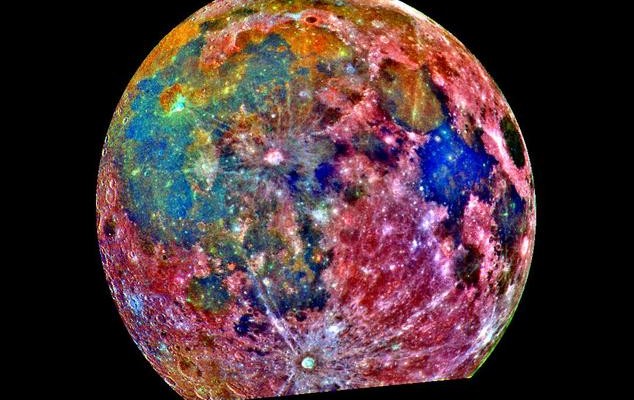Editor’s note: at xyHt and Pangaea we’ve been adding “geo-space-al” content into our geospatial mix, and readers have been responding positively. Surveying on Mars is a great example. When you think about it, geospatial technology and space are inextricably intertwined; from GNSS to satellite-based remote sensing, we rely on space-based technology to tackle almost every project we do. Before you know it, geospatial professionals will be conducting boots-on-the-ground surveying missions beyond Earth. In this two-part series we’ll take a look at some of the possible off-planet scenarios that will challenge the profession.
With all the excitement about Mars, it’s understandable that many are looking beyond the moon and focusing directly on the exploration and eventual colonization of Mars. Not so fast, prospective Martians! Here are some very good reasons to take another look at the moon, especially if you thinking of hopping on the Mars train.
Resources: The trip to Mars will take a lot of resources; fuel and water are critical components. Both can be mined right on the Moon sans the expense (it costs $10,000 to put a pound of payload in Earth orbit) of launching these resources into space. Back in 2010, NASA’s Mini-SAR (synthetic aperture radar) found more than 40 small craters with water ice. It’s been estimated there could be at least 1.3 trillion pounds (600 million metric tons) of water ice on the Moon. Water can be used for sustaining humans on the long voyage—a Mars mission would take roughly 2.5 years—and, through hydrolysis, water can be broken down into hydrogen and oxygen and used as fuel.
Fuel the Earth. Aside from fueling our missions to Mars, the Moon could soon fuel planet Earth. Our Moon holds vast supplies of He3 (Helium-3) which many believe could fuel the next generation of fusion reactors and solve Earth’s energy crisis.
Staging and training. Although there have been several Mars habitation experiments on Earth, humankind has no real experience living off-world. A Moon base would provide a way to work out the kinks of living off-planet while the surface is being mined for water and fuel. What’s more, most plans for the journey to Mars involve final fueling and fitting of the interplanetary craft, not on Earth, but in space. The Moon could make a good staging base to get spacecraft ready for the big trip.
For more detail on how United Launch Alliance is planning to turn the Moon into a refueling station, check out: “ULA’s Plan to Have 1,000 People Working in Space by 2045.”
Of course, there are those who believe we should skip the Moon and go directly to Mars. Their arguments will be discussed in the next issue

